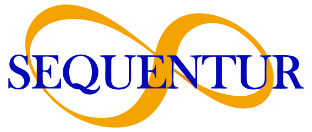Ensuring IT Compliance Services with a Hybrid Workplace
First off, let’s define “Compliance” in the context of business IT and/or managed IT services.
In simple terms, it is those activities concerned with maintaining adherence to internal company policy, as well as any relevant laws that the company may be subject to depending on the field it operates in, particularly in the sector of cybersecurity and the safeguarding of important or sensitive data.
The ongoing COVID-19 pandemic has presented businesses across the world with many unique challenges when it comes to their day-to-day operations. With every business trying its best to survive in this unprecedented climate, remote working has become a critical factor in keeping operations up and running.
However, this adaptation has exposed businesses to a whole new level of cybersecurity and compliance threats.
With cybercriminals preying on vulnerable home networks and work-from-home employees saving files on their local drives, the threat to business data is at an all-time high. According to the Coveware Ransomware Marketplace Research report, the average ransomware payment for Q2 2020 stood at $178,254. This is a whopping 60% increase from the Q1 2020 average payment.
Despite the increasing magnitude of cyberthreats, organizations can still make the most of all the great solutions available to them through an IT service provider to successfully overcome this menace even when a portion of or the entire workforce is working remotely.
In this article, we’ll look at the major compliance and security concerns associated with remote work and how to overcome them.
Challenges to Security and IT Compliance Services With Remote Work
When remote work became ubiquitous across the world, most organizations were forced to adapt to this change without any solid policies or processes to maintain IT support standards. Due to this, even some of the top companies are still catching up on their compliance adherence measures while facilitating remote work.
Businesses of all sizes face the following challenges when operating with remote employees:
Reduced security
When the lockdown started, employees took their business devices home and used them on their home networks. They also occasionally use their personal devices for office work. This poses a great threat to business data since organizations have very little control over security.
Inability to enforce best practices
When operating within their office environments, companies can ensure data security best practices are followed by their employees. However, the scenario is vastly different with remote work. There’s every possibility that employees may use shared networks or public Wi-Fi connections to perform their work, adding to security complications.
Inadequate backup
With remote work becoming the norm, and many as Hybrid Workspaces, the threat to data is significantly higher now. Unfortunately, data backup failure is quite common as well. That’s why organizations need to make sure they have multiple copies of their critical data in case their remote servers are compromised.
Lack of employee awareness about IT Compliance Services
Although most organizations follow best practices with regard to employee and customer data, human error is still a major threat to security and compliance. Remote employees need to be provided with proper awareness training on how to handle data and on the best practices to follow.
Best Ways to Ensure Compliance During Remote Work
Despite remote setups make compliance more challenging than usual, organizations can incorporate the following best practices to boost their security and stay compliant with the various regulations they are subject to.
Create a cybersecurity policy
If you don’t have a cybersecurity policy in place already, it’s time to create one.
It is vital that organizations create a cybersecurity policy suitable for remote work. This policy should cover the various steps employees need to follow at personal as well as professional levels.
By establishing proper standards and best practices for cybersecurity, organizations can minimize their exposure to risk. If you are having trouble with this or don’t know where to start, a managed IT services provider can help advise you.
Incorporate a consistent data storage policy
Without a standard cloud storage policy, employees are likely to store and handle data any way they see fit, which is certainly not advisable.
A managed IT services (IT MSP) provider can set up a shared repository on the cloud to back up files instantly from different sources. In many cases, the rogue copies that employees store on their local drives can pose a major threat to data security and create inconsistencies in storage policies.
You need to make sure that data storage policies are strictly followed throughout the organization.
Increase remote monitoring
During remote work, endpoint management and cybersecurity policies are impossible to incorporate without the power of automation. You need a strong remote monitoring solution that manages all your endpoints and helps you adhere to compliance regulations.
When you have complete visibility into the entire remote working network, you can minimize vulnerabilities and security threats. This monitoring is a major advantage provided by a quality IT MSP service (IT Compliance Services included)
Increase employee awareness through training
Because human error is one of the most common causes of compliance violations in any organization, your IT company can provide proper training to remote and in-house employees.
This training should focus on major issues such as clicking questionable links, being wary of messages from untrusted sources, having strong passwords, implementing multi-factor authentication, etc. If your organization falls under specific compliance regulations, you need to provide additional training to data-handling employees regarding the best practices to be followed.
Use the right tools and solutions
As cybercriminals and their tactics continue to evolve, an IT Compliance Services of local and nation-wide MSP can make sure that you use the right software tools and solutions to combat this threat.
In addition to remote monitoring software, you need to use the right antivirus, cloud backup, password manager, and more. You also need to make sure that these solutions are properly integrated into a comprehensive platform.
What Businesses Need
Ensuring compliance is a critical task by itself. Doing that while implementing remote working policies and procedures can be extremely overwhelming for organizations.
That is why it just makes sense for many organizations to go with managed IT services and let the professionals at Sequentur take care of IT.
It would benefit you to invest in a security solution for your business that allows you to operate efficiently while protecting your valuable data and meeting compliance regulations, even with a remote workforce setup.
Reach out to us today so we can help you zero in on an effective compliance strategy customized for your needs.
Get in touch with us today and let’s talk about Sequentur IT Compliance Services.
Tampa Bay Office: (813) 489-4122, Washington D.C. Office: (800) 959-5731


